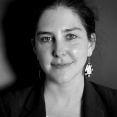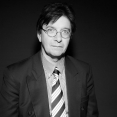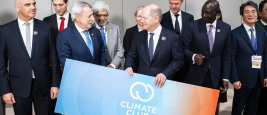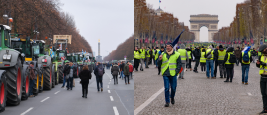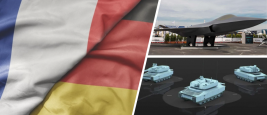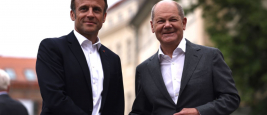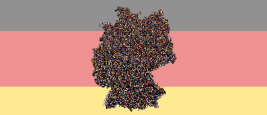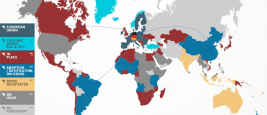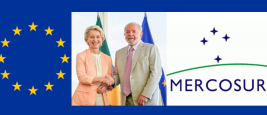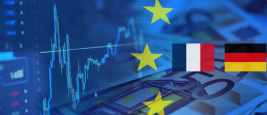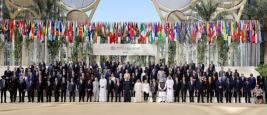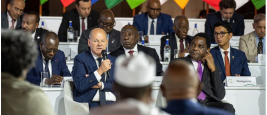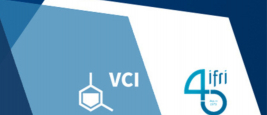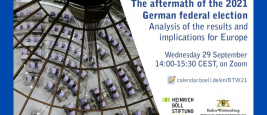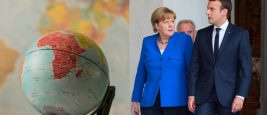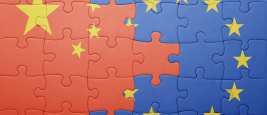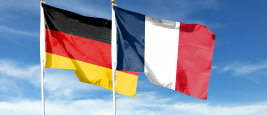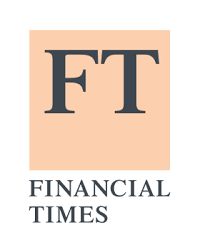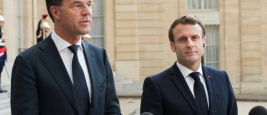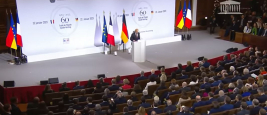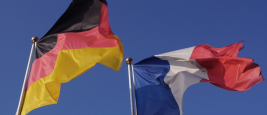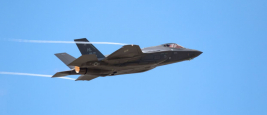The Alternative for Germany (AfD) was formed in 2013 in the context of the currency crisis as an “alternative” to the Merkel government’s policy of rescuing the euro. Since then, the party’s platforms for the European elections in 2014, 2019 and 2024 have become increasingly radical.

Germany on the world stage
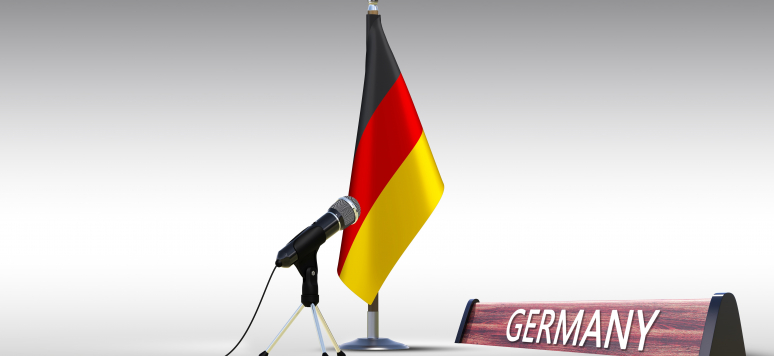
In a changing world, Germany is more than ever seen as a factor of stability in the face of increasingly numerous and frequent crises. The longevity of its political staff, the power of its economic model and the appeal of its code of values and principles are certainly not unrelated. It embodies stability but can it also serve as a bulwark against the phenomenon of deconstruction of the multipolar order from 1945? The Islamist terrorist threat, the war in the Middle East, Russian expansionism, the unpredictability of the Trump administration, the rise of populism, the question of opening markets and the uncertainty about the future of the European Union constitute the various elements of a poly-crisis which undermines the foundations of German foreign policy. None of these challenges can be met alone or independently of others. Not to mention the dangers that lie ahead in the longer term.
In 2017, the Study Committee on Franco-German Relations (Cerfa) published the collective work " Germany on the International Stage - In Search of Stability in a Changing World " (available in French), edited by Barbara Kunz, Hans Stark and Stephan Martens.
Secretary General of the Study Committee on Franco-German Relations (Cerfa)
...Research Fellow, Study Committee on Franco-German Relations (Cerfa)
...Research Fellow, Study Committee on Franco-German Relations (Cerfa)
...Counselor on Franco-German relations at Ifri
...With the war in Ukraine, Germany’s “traffic light” coalition government has had to adapt its climate policy to the upheavals caused by this war, which has turned its economic, energy, and military model upside down. Against a backdrop of high energy costs and increasing calls for reshoring in...
The influence of different protest cultures on democracy in Germany and France is complex. The protest takes various forms, serves as political representation, and contributes to the formation of political opinion.
Influences and developments within German agricultural policy have undergone significant transformations over the past 70 years, especially in the context of the dynamic Franco-German relations and the pivotal role both nations play in shaping the European Union’s Common Agricultural Policy ...
The FCAS (Future Combat Air System) and the MGCS (Main Ground Combat System) represent the latest chapter in a more than seven decades-long history of Franco-German defense co-operation.
As the doors of the illustrious Hôtel Beauharnais on Rue de Lille 78 swung open on the evening of 4 October, and the masses streamed into the German Embassy in Paris to celebrate German Unity Day, the reports of the currently strained state of Franco-German relations seemed...
The debate about labor shortages has been long dominating the German public debate. It has been pushed to the agenda again in the context of recent reforms in migration policy. Paradoxically, Germany boasts a robust population size, a significant labor force, and a notably larger proportion of...
As one of the most successful trading blocs, the European Union (EU) sees itself confronted with the erosion of the global rules-based trading system and trade becoming increasingly weaponized.
The EU-Mercosur trade deal was believed to be heading toward the finish. The election of Luiz Inácio Lula da Silva as the president of Brazil, as successor to the right-wing populist Jair Bolsonaro, and the Spanish presidency of the European Union (EU), raised hopes for its conclusion....
The state of public finances in France and Germany is often compared. Germany is considered a model of rigor, through its ability to contain its deficits and generate surpluses, particularly between 2012 and 2019, thanks to the introduction into its constitution of a debt brake mechanism. ...
Foreign Climate Policy – Fostering Energy Transition and Combatting Climate Change Worldwide Webinar
On December 6, 2023 during the COP28, Germany presented its new Strategy on Climate Foreign Policy. The strategy seeks to build strong partnerships with countries worldwide in the fight against climate change, maintaining biodiversity and securing renewable energy sources.
German and French Africa Policies in a Multipolar World Conférence
As Africa experiences a paradigm shift in its global positioning, characterized by the rise of multiple regional and international actors, it becomes imperative to examine how traditional European powers, such as France and Germany, navigate this transformed landscape.
Reconciling the Green Deal with Europe’s Competitiveness – What Industrial Policy is needed? Videoconferences
Europe has embarked upon a vast process of decarbonizing its economy by 2050. The EU approach to guide this collective transformation within only 30 years is marked – as currently designed – by means of regulatory pressure and a myriad of legislative pieces.
The Aftermath of the 2021 German Federal Election - Analysis of the Results and Implications for Europe Webinar, Heinrich Böll Stiftung Brussels - European Unionsucc
On September 26, 2021, German Federal Elections will be held, and mark the end of the Merkel era. The political equation is likely to be complicated because of the possible combinations and the difficulty for political parties to achieve a stable majority. Important choices are at stake for...
The Africa policies of France and Germany
As demonstrated by the current negotiations over the new European Africa strategy, 2020 is a milestone for the relationship between the two continents.
Is it Time to Reassess EU-China Relations with Covid 19? Closed-door Seminar Series - German Presidency of the Council of the European Union
Before the Covid 19 crisis, the German presidency had set an ambitious agenda for EU-China relations, in particular with the prospect of an EU-China summit in Leipzig in September.
Coronavirus crisis - What approach for a Europe of solidarity? Webinar, French Institute of Germany, Friedrich-Ebert-Stiftung
Discussion with Birgit Sippel, MEP, and Éric-André Martin, Secretary General of the Study Committee on Franco-German Relations (Cerfa) at the French Institute of International...
Breakdown of continental partnership is a threat to Europe – and could be catastrophic for Ukraine. It was meant to be a patching up of the notoriously fraught Macron-Scholz relationship, a “reset”, to borrow Hillary Clinton’s expression.
As the vital relationship between Franco-German leaders Olaf Scholz and Emmanuel Macron appears “broken”, hopes for a sustainable fix rest on the Weimar Triangle and even the return of an old nemesis.
Allies fret that Franco-German animosity is undermining western unity over Ukraine. Emmanuel Macron will arrive in Berlin on Friday for talks designed to repair a fractured Franco-German relationship marred by caustic public spats and mutual recriminations over the war in Ukraine.
The two nations have opposing ideas about atomic energy, threatening the EU’s transition away from fossil fuels.
French President Emmanuel Macron will visit Prime Minister Mark Rutte in The Hague on Monday evening. He mainly hopes for Rutte's support for a European rebuttal to Biden's protectionist green industrial policy.
As France and Germany celebrate the 60th anniversary of the Elysee Treaty, there's mounting pressure for the two countries to revamp their cooperation and leadership within the EU.
From the cupola of the great amphitheater of the Sorbonne, the five large medallions in monochrome representing the sciences, letters, law, medicine and theology will judge the event. Sunday January 22, in the morning, in one of the oldest universities on the continent (founded in 1253), the...
Two leaders under pressure to repair relations after rifts over defence, energy and China. The French president, Emmanuel Macron, hosted the German chancellor, Olaf Scholz, for lunch on Wednesday as they sought to iron out significant differences on energy and defence that have weakened...
Germany wants to upgrade its military with the world's most modern fighter jet. The order is worth billions. But is it a good fit?
The coalition deal struck between three parties that will form Germany’s next government is very much in line with France’s own ambitions and priorities, including its vision of a more federal EU.




